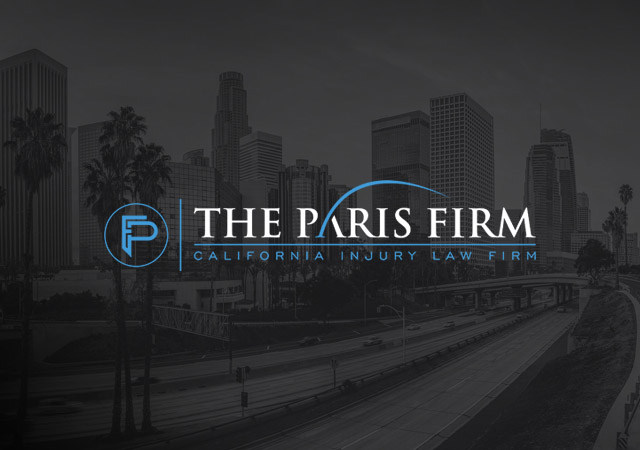What is the Description of Emotional Distress in a Personal Injury Claim?
After a car crash, you may suffer bodily and mental injuries. Personal injury attorneys in California explain that emotional distress is a concept that describes the mental anguish or suffering you may experience due to a traumatic event.
In relation to personal injury claims, emotional distress is also known as pain and suffering. It is a subjective non-economic damage that may arise even if you don’t sustain physical injuries after an accident. Skilled lawyers provide an overview of seeking compensation for emotional distress.
Can I Sue for Emotional Distress After a Car Accident?
The law in California has provisions that allow car accident victims to pursue damages for their pain and suffering following a car accident. In the past, plaintiffs could only recover compensation for emotional distress if it was directly linked to a physical injury, such as a broken limb or spinal injury.
California car accident lawyers say the state has modified this rule, allowing car accident victims to sue for pain and suffering without a related physical injury. If you suffer from post-traumatic stress disorder or depression, that could be a basis for a tort claim on its own.
In some cases, you can pursue these damages if you can prove that you suffered the distress due to the intentional negligence of another person. Nonetheless, having a physical injury can dramatically strengthen your claim, but it’s not a prerequisite for filing a lawsuit.
Types of Emotional Distress for Which You Can Pursue Compensation
Car accident attorneys in California explain that emotional distress can arise from various situations, with the nature of the harm significantly influencing the type of legal claim you can make. Some common categories of emotional distress claims are:
- Negligent infliction of emotional distress (NIED): The harm occurs when the at-fault party acts in a manner that causes emotional harm to the plaintiff, even if there is no direct physical injury. An example is an accident that causes the death of someone well-known to the plaintiff. The claims are also known as direct or bystander victim claims.
- Intentional infliction of emotional distress: The case is based on a defendant’s extreme and outrageous conduct, such as road rage leading to emotional harm to the plaintiff
- Wrongful death: The wrongful death of a loved one due to the intentional or accidental negligence of another person can lead to emotional distress to the surviving family members. For example, losing a spouse in an accident can lead to depression or extended grief.
These categories of emotional distress can present the following life-altering symptoms:
- Anxiety
- Mental anguish
- Shock
- Grief
- Worry
- Humiliation
- Shame
- Horror or fright
- Nervousness
- Depression
- Fear
- Insomnia
- Post-traumatic stress disorder
If you suffered any of these conditions after a car accident that was not your fault, consult experienced car accident attorneys in California. They can provide legal guidance and support in filing a compensation claim to protect your rights.
How Can I File an Emotional Distress Claim?
Seeking compensation for emotional distress in California can be complex as it requires an in-depth understanding of the legal system and process. You also must present compelling evidence that supports your claim. You stand a better chance of recovering the amount you deserve if you work with aggressive personal injury attorneys in California.
They can help you do the following:
- Understand the legal requirements of your claim, such as the elements required to prove emotional distress, the severity of your emotional distress, and the causal link between the defendant’s actions and the harm you suffered.
- Gather evidence: Proving your claims can be difficult without supportive evidence. Your legal experts can help you gather crucial evidence, such as medical records for therapy and counseling sessions, witness statements about the traumatic incident, and statements from mental health professionals who have treated you for emotional distress.
- Prepare and file the complaint: Your lawyers will help you draft a legal claim that outlines the specifics and facts of your claim, explaining the claim’s legal basis and the compensation you seek. With a strong case, the lawyers will file a suit.
- Serve the defendant: You must serve the defendant with a copy of the claim to inform them of the pending lawsuit against them. Their legal team will have an opportunity to respond.
- Discovery and negotiation: The discovery process enables both parties to exchange relevant information and evidence, with your attorney working hard to ensure the process is thorough. If possible, they will also negotiate with the defendant to reach a fair settlement.
- Trial: If negotiations fail, your case will proceed to trial, where a judge will listen to arguments from both sides and determine the outcome and the suitable settlement award.
It can be months before you finally receive a settlement amount, and the amount you receive depends on the severity of the pain and suffering and the impact on your life. When determining an award, the court will consider various factors like ongoing treatment expenses and the overall effect of the emotional distress on your daily life.
A Skilled Car Accident Attorney Helping You Pursue Compensation for Emotional Distress After an Accident
If you have emotional distress sustained after a car accident, skilled California car accident attorneys can help you seek compensation for the damages. The process may not be easy or straightforward, as you must meet various legal requirements that require in-depth knowledge of the law.
However, a successful claim can see you recover a fair compensation amount to help you rebuild your life after an accident. The Paris Firm has knowledgeable car accident attorneys who can walk the journey with you to fight for your rights. We’re ready to help you get your life back. Call us at 909-325-6185 to schedule a FREE case evaluation.













